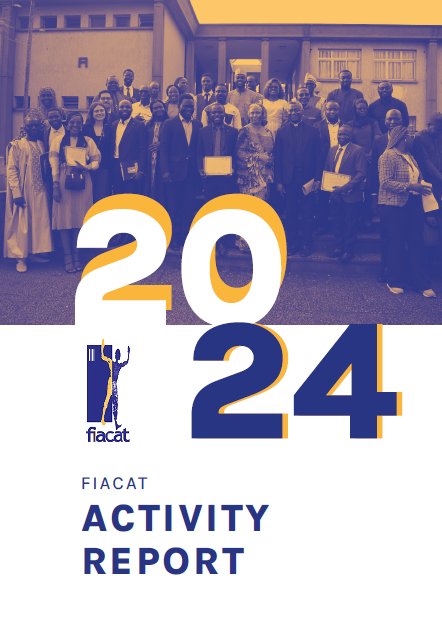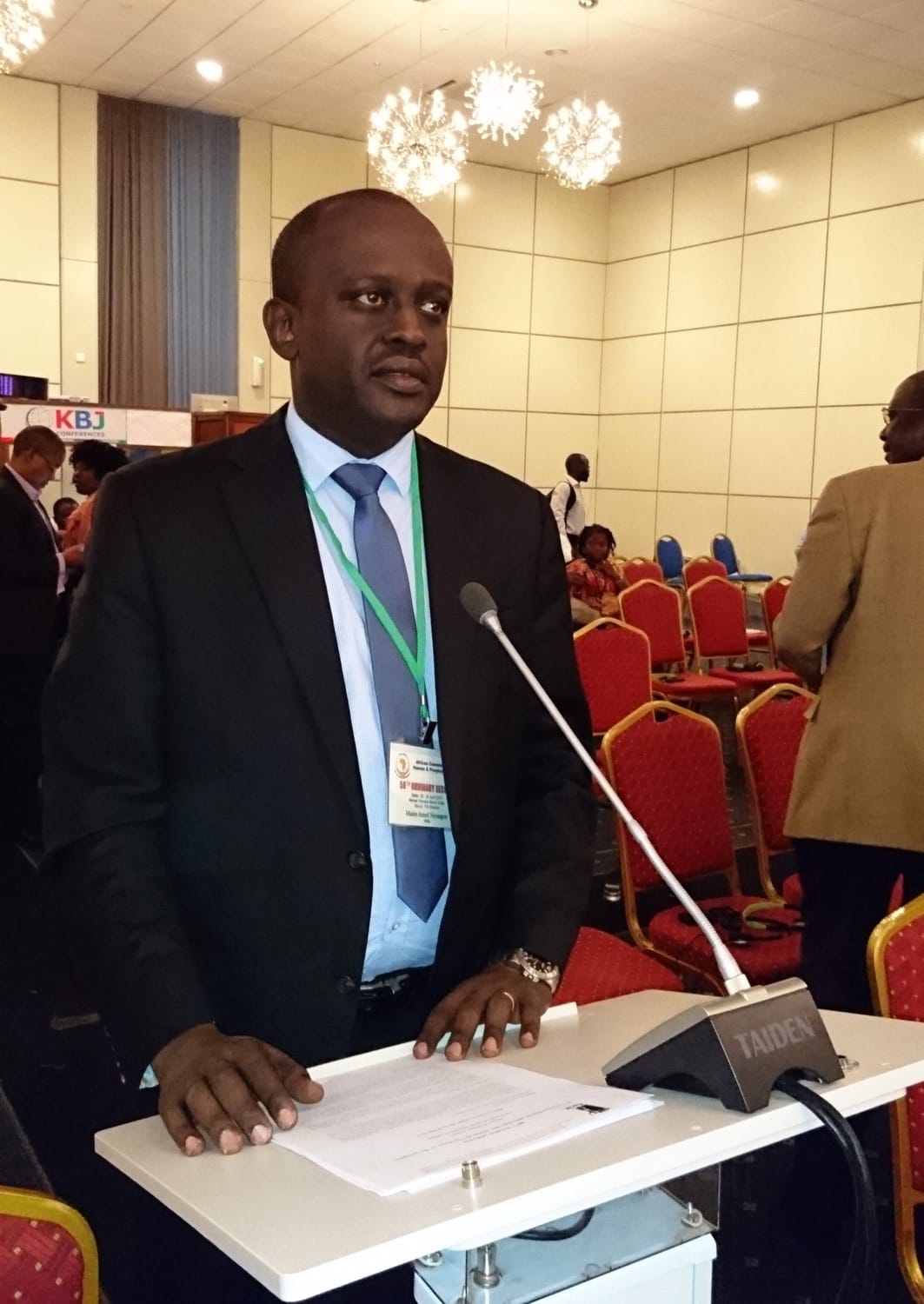58th Ordinary Session
of the African Commission on Human and Peoples' Rights
Agenda item 3:
Human rights situation in Africa
Oral Statement by FIACAT
Madam Chairperson,
Commissioners,
FIACAT, the International Federation of Action by Christians for the Abolition of Torture, and its network of associations in 16 countries in sub -Saharan Africa are particularly concerned about the deteriorating human rights situation in Africa. Recent events, namely the violence observed during elections, the intimidation of human rights activists, and constant terrorist threats, are undermining the achievements of the Commission and the fundamental rights on which it has been working for nearly 30 years. Since 2016 is the African Year of Human Rights, we can only encourage all initiatives by the ACHPR for the protection and promotion of human rights.
Madam Chairperson,
FIACAT and its members have been working in prisons for many years and have found that the statutory time limits for preventive detention are very rarely respected. Persons held in preventive detention account for more than 50% of the prison population in most African countries. In some prisons, the rate is as much as 80% or even 90%.
These cases of abusive preventive detention have numerous consequences, both inside prisons and on the outside. Firstly, the failure to comply with statutory time limits substantially increases prison overcrowding, resulting in a reduction in food rations and less space for prisoners, promoting the spread of diseases and reducing access to care. Moreover, on the outside, abusive preventive detention results in social stigmatisation, fewer resources and difficulties of reintegration.
Under regional and international legislation, preventive detention, especially when abusive, may constitute ill -treatment or even torture. By adopting the Luanda guidelines on arrest, police custody and pre -trial detention at its 55th Ordinary Session, the ACHPR sought to make this issue a priority. This initiative should be underpinned by disseminating these guidelines. FIACAT is committed to this, via its network, and is actively involved in training and monitoring in African prisons to prevent acts of torture. It contributed in 2015 to the release of more than 100 prisoners held in abusive detention in Benin and Côte d'Ivoire.
Madam Chairperson,
Where the death penalty is concerned, FIACAT is concerned about the anti -terrorist laws adopted in particular by Cameroon and Chad. The latter has unfortunately resumed executions after a 12 year moratorium. In August 2015, 10 death row prisoners were executed the day after their convictions, thus putting into question the State's obligations under paragraph 24 of General Comment No 3 on the African Charter relating to the right to life.
However, FIACAT notes several positive developments regarding the death penalty in Africa. The current trend is towards a decrease in the number of convictions and executions. Also, while the procedure remains highly questionable, the Republic of Congo abolished the death penalty through a referendum held in October 2015. Also in 2015, Madagascar too abolished the death penalty and the Ivory Coast removed from its Penal Code any reference to the death penalty. Today, 19 Member States of the AU have abolished the death penalty in law, and at least 18 apply a de facto moratorium on executions. However, many States still retain the death penalty in their legislation.
It is therefore the Commission's duty to encourage all Member States to abolish the death penalty and to adopt a regional instrument strengthening Article 4 of the African Charter. FIACAT, in partnership with the World Coalition against the Death Penalty and the FIDH, in collaboration with the ACHPR Working Group on the Death Penalty in Africa, has been working for several years on this regional instrument that was adopted by the Commission at its 56th Ordinary Session, but has yet to be adopted by the African Union. FIACAT and its partners call upon African States that have already abolished the death penalty to support the Commission's work in this area.
Madam Chairperson,
Lastly, FIACAT wishes to call the Commission's attention to the crisis in Burundi. Since the announcement of President Nkurunziza to seek a third term, the situation has steadily deteriorated. Demonstrations have been violently repressed and opponents and human rights organisations have been the victims of reprisals, torture or executions. Prominent figures of Burundian civil society and many other human rights activists have been forced to leave Burundi and take refuge in neighbouring countries. This is my own particular case as an advocate of human rights and Chairman of ACAT -Burundi.
Since the conflict began, hundreds of people have been killed. Recent reports indicate that mass graves have been discovered in different parts of the country. Despite the recent visits of the ACHPR, the Secretary General of the United Nations and a delegation of African Union Heads of State, as well as discussions with the European Union, there are no palpable signs of an improvement in the situation, and there is a real risk of another genocide in the region.
Given the urgency of the situation, it is imperative that the Commission, the African Union and the international community assume their responsibilities, in order to ensure that the Burundian population is not decimated and that the region is not destabilised by a new large -scale cycle of violence.
Thank you.




